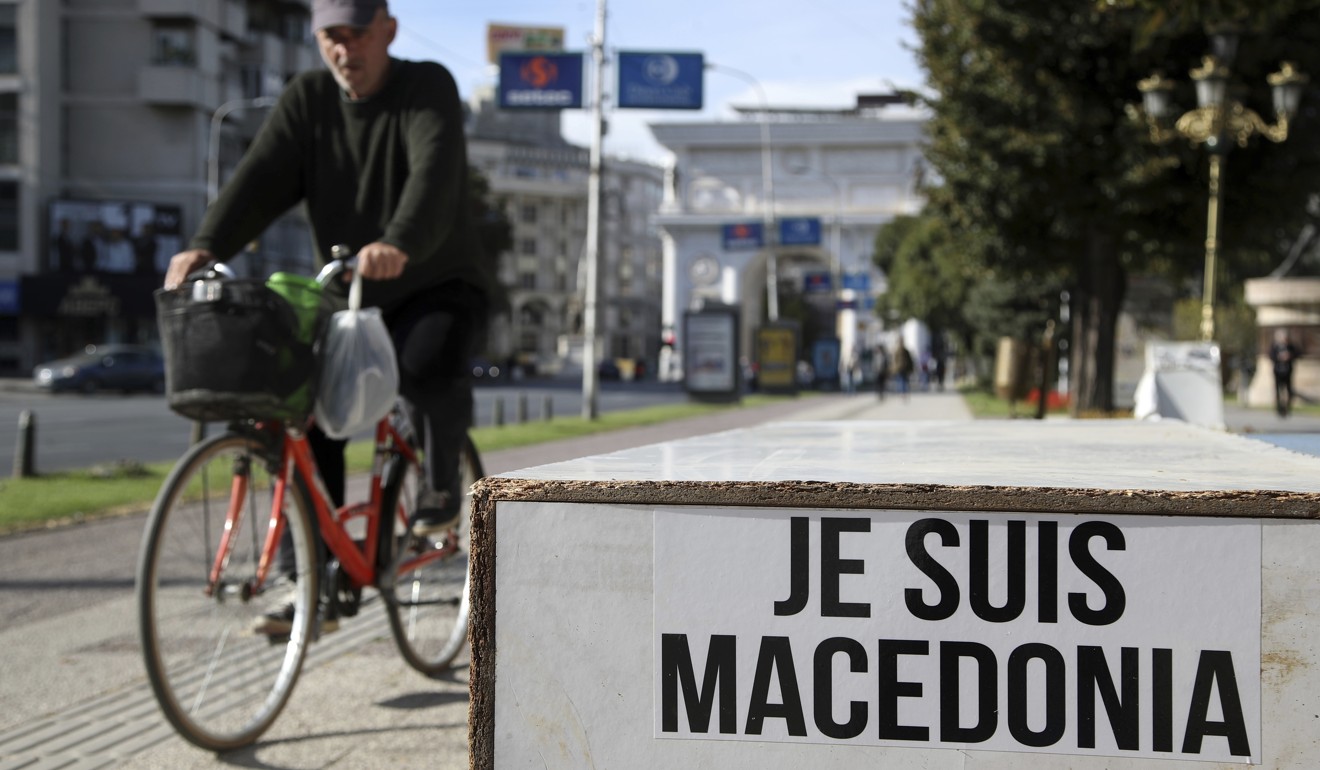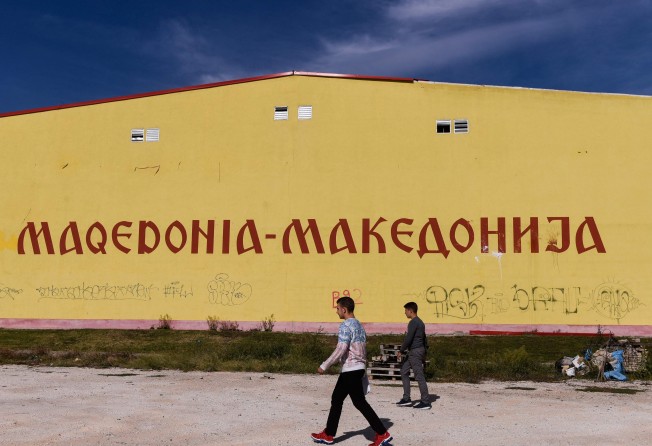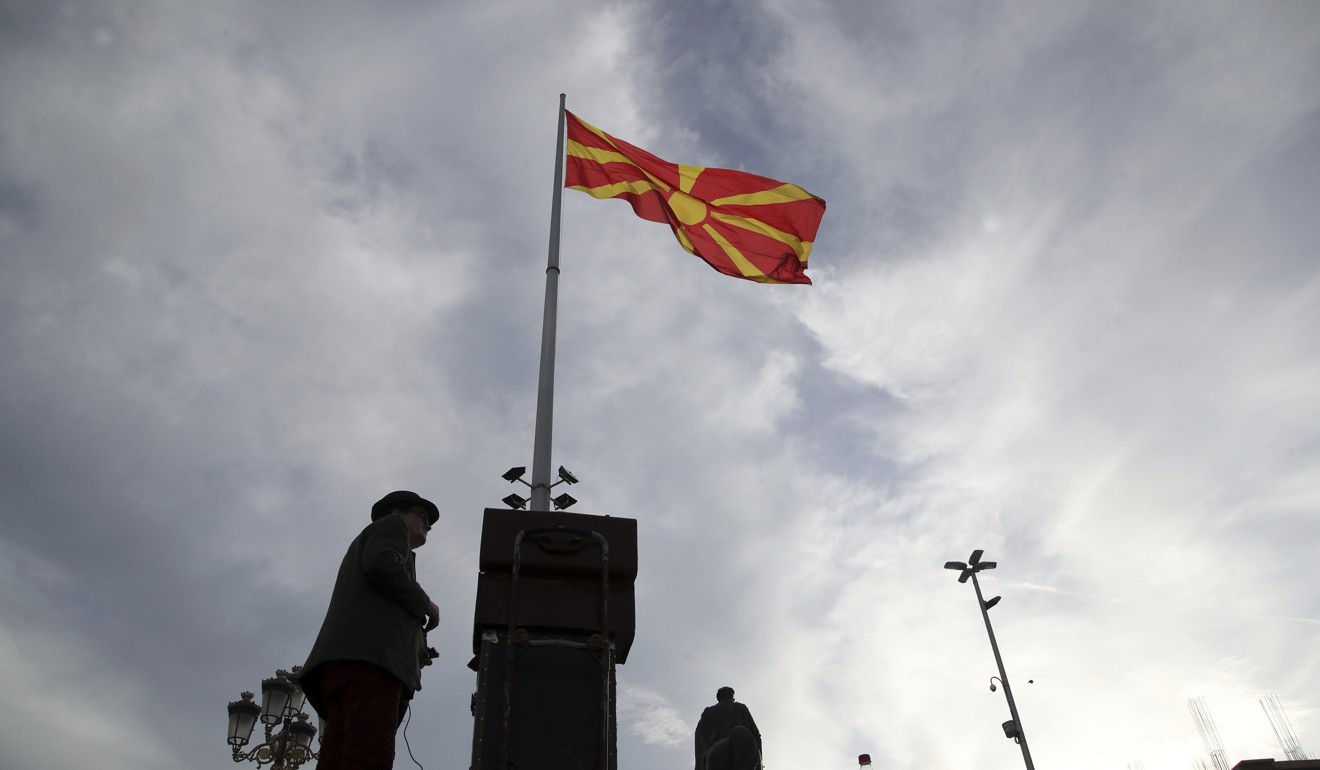
Russia and the West battle over Macedonia’s future as it votes on new name
The citizens of one of Europe’s youngest countries are being asked to weigh matters of national identity and national interest as they decide a fundamental question: what their homeland will be called

Russia and the West are battling for Macedonia’s future, and the outcome could be known as early as Sunday, when the tiny Balkan nation will vote whether to accept a name change that could unlock the door to the European Union and Nato.
The referendum has turned into the latest testing ground for Kremlin influence, Macedonian and Western officials say, as mysterious hooligans turned out to soccer matches to stir up trouble, a fleet of new websites spread calls to boycott the vote and Russia’s ambassador in Skopje warned that the country could become “a legitimate target” if tensions increased between Russia and Nato.
Pro-name-change politicians, meanwhile, warn that they have a once-in-a-generation opportunity to move westward, and they say that they should seize it.
Macedonia’s name has been the focus of an obscure but consequential dispute with Greece ever since Yugoslavia broke up in the early 1990s. Greece sees the name as a revanchist threat to its own northern regions, also called Macedonia, and in return it has blocked Skopje’s entrance into Nato and the EU.
The non-binding referendum asks voters to approve an effort to disarm the fight by adopting the name “Republic of North Macedonia” in line with a deal Greek and Macedonian leaders struck a deal in June.

In exchange, Greece would drop its opposition to Nato and EU membership.
Polls suggest Macedonians support the deal, but the referendum could be imperilled by low turnout. At least 50 per cent of eligible voters must participate for the result to be valid under Macedonian law. President Gjorge Ivanov split from the country’s prime minister and called for a boycott of the vote this week. The main opposition party declined to take a clear stand on the vote, although it opposes the deal.
“If they vote no, Russia sees this as a huge victory,” said Michael Carpenter, who was a senior Pentagon official during the Obama administration and is now senior director of the Biden Centre for Diplomacy and Global Engagement at the University of Pennsylvania.
“There’s more unrest, there’s more instability in the region.”

In a sign of the stakes, high-level Western leaders have streamed to Macedonia in recent weeks, including US Defence Secretary James Mattis, German Chancellor Angela Merkel and Nato Secretary General Jens Stoltenberg. All have encouraged Macedonians to endorse the change and start talks to join Nato.
“There is no alternative for my country than full membership in Nato and also, in parallel, full membership in the European Union,” Prime Minister Zoran Zaev said after meeting with Stoltenberg this month.
“We are a small country, and we are a friendly country, and our intention is to build friendship with everybody, including Russia.”
A leaked Macedonian intelligence brief last year asserted that the Kremlin was engaged in an organised effort to prevent countries around the Western Balkans from joining Nato. Macedonian leaders said they have seen an uptick in Russian efforts to influence the discussion ahead of the vote.
One of those efforts may have involved hooligans connected to a Macedonian soccer team owned by a wealthy Russian businessman. The hooligans told local media they had been paid to stir up violence during anti-name-change protests in Skopje in June.
Separately, Greece expelled four Russian diplomats in July for alleged attempts to fan anger about the deal in the northern Greek city of Thessaloniki. The expulsions were a sharp break from Greece’s historically warm relationship with Russia.
“We have seen Russia trying to interference in democratic political processes in this region for many years,” Stoltenberg said in an interview during his trip to Skopje and Athens.
“I’m confident that Skopje and the people will resist these kinds of attempts to interfere.”
Nato leaders, including US President Donald Trump, approved plans in July to start membership talks with Skopje if the country backs the agreement.
Trump would still have to give a final sign-off, however, and there has been some scepticism at the White House about further Nato expansion. In July, Trump said he worried that Montenegro, which joined Nato last year, “may get aggressive, and, congratulations, you’re in World War III.” (Nato members are obliged to act in one another’s’ defence, but not if a member instigates conflict.)